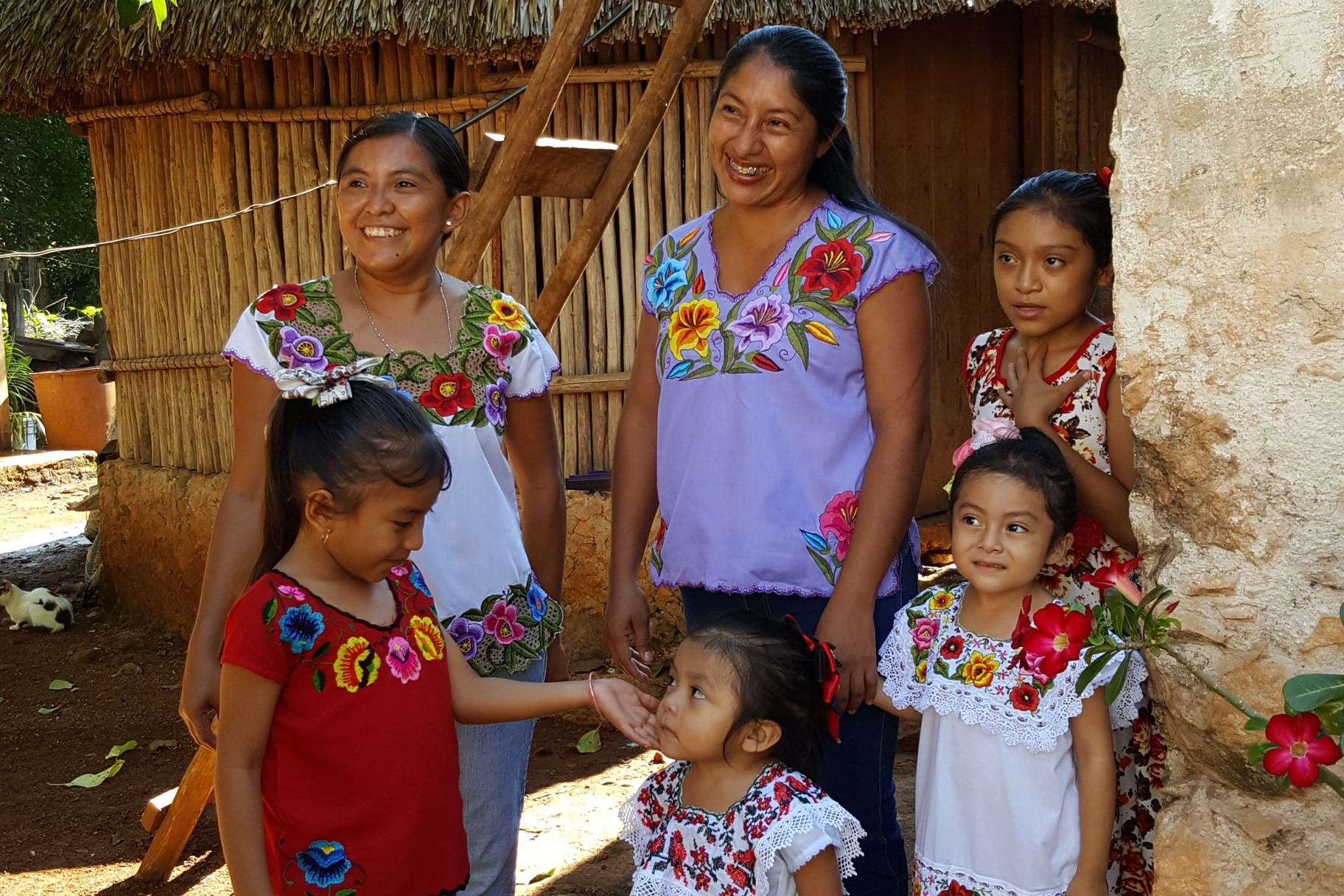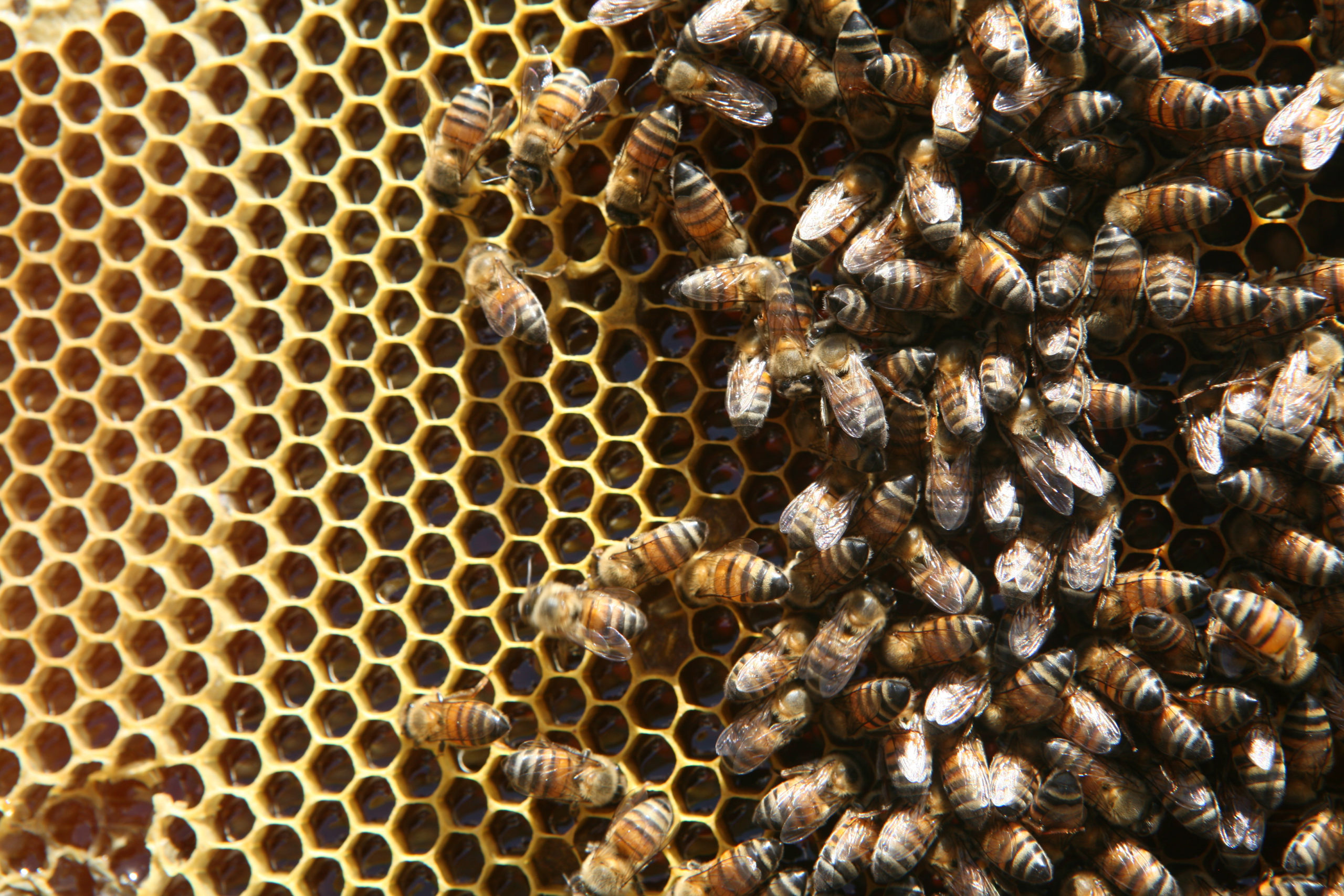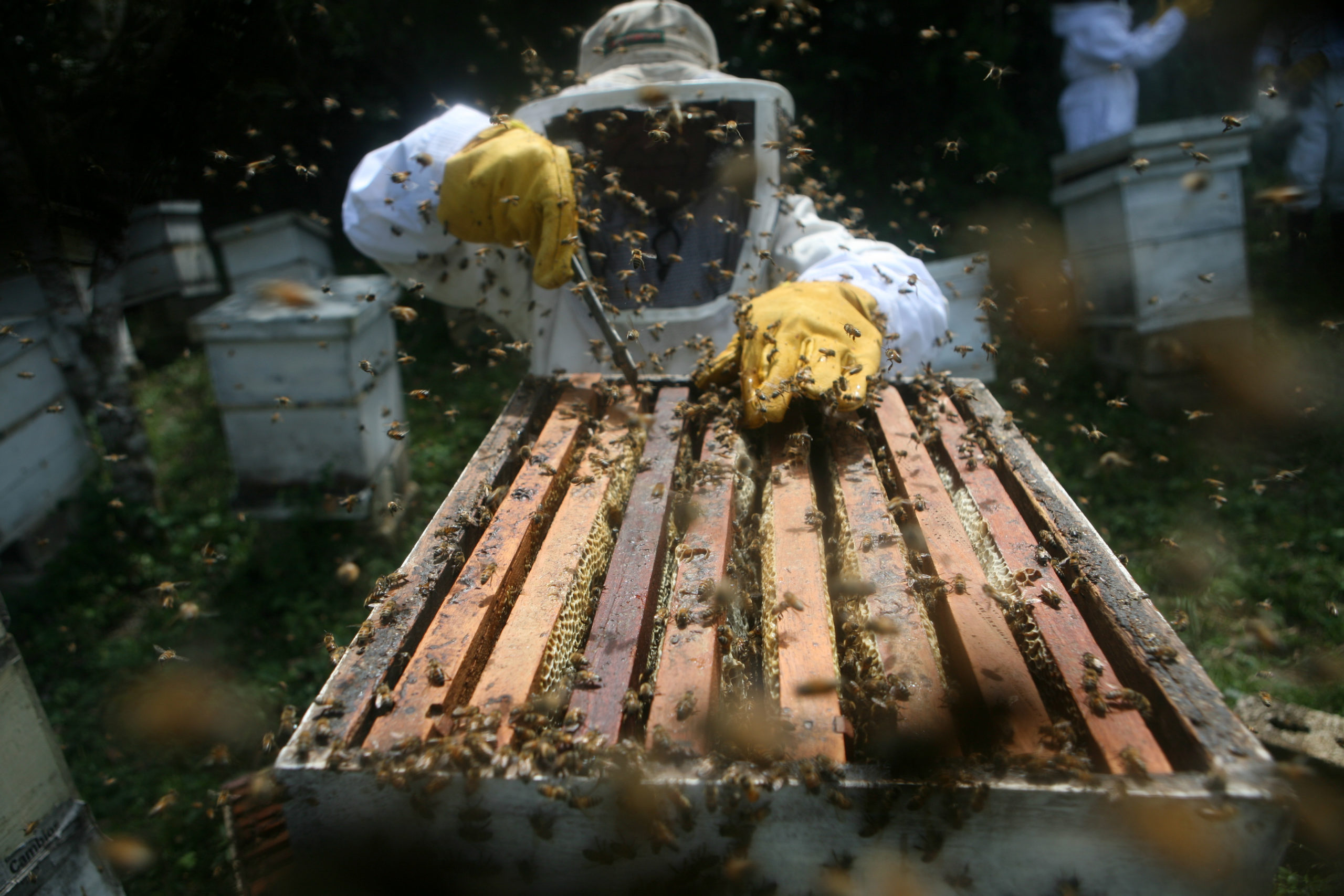
On Mexico’s Yucatan Peninsula, nestled far from the sea, the town of Kankabchen is teeming with honeybees. In this Maya community, honey is more than just a business—it’s a cultural touchstone. Families have raised bees for generations. Some can still remember when honey was used in place of doctors’ visits to close wounds and treat cataracts.
Lidia Maribel Moo Poot grew up hearing these stories from her grandmother, and she takes pride in her family’s legacy. The bees she raises at her apiary, “Las Tres Melidas” (named for her three daughters), are Melipona bees—a species that produces a honey varietal prized on the international market. Everyone in Kankabchen is reliant on these beekeepers for their livelihoods. “We have a good life here, planting and harvesting from our own gardens,” Lidia explains, “but without bees, we wouldn’t have our own fruits or vegetables.”
These days, however, Lidia wonders whether this ancient tradition will still be around for her daughters.

In the last few years, Lidia has noticed shifting rain patterns and temperature swings—concrete impacts of climate change. As a result, over the last five years, Lidia’s hives have become eight times less productive while the cost of maintaining them has remained the same. Meanwhile, nearby farmers similarly affected by climate change are driven by desperation to fumigate their crops, unintentionally harming Lidia’s bees, which fly for miles in search of pollen.
“We beekeepers see the effect of these chemicals” Lidia says. “Sometimes, bees come back who are contaminated… and they enter the hive and kill other bees. I personally have lost six or eight hives to this problem just this year.”
Luckily, Lidia is a member of U Lool Che, a honey cooperative that’s part of a larger collective of co-ops called Educación Cultura y Ecología, A.C (EDUCE). EDUCE and U Lool Che train beekeepers like Lidia on organic apiculture, blending time-proven traditional practices with cutting-edge agronomic research and modern hive technology. This approach protects honeybees and the environment while boosting incomes, ensuring beekeeping is sustainable for generations to come.

But training isn’t enough. Many beekeepers lack the money needed to update their practices. With support from the Walmart Foundation, Root Capital helped U Lool Che overhaul its internal credit system, through which beekeepers can acquire small loans from the cooperative to invest in their future. With knowledge, confidence, and capital from the cooperative, members like Lidia are becoming leaders in their communities, advocating for more widespread organic practices to protect bees—and farmers’ crops—for the long term.
Between 2017 and 2019, Root Capital provided credit and capacity-building services across six states of Mexico to support 9,000 coffee, cocoa, and honey farmers. This program was made possible thanks to a grant from the Walmart Foundation.
Lidia knows that beekeeping is not just a livelihood, but a legacy: “I want to teach my daughters the culture where all of this [beekeeping] comes from, the importance of it… I want them to value that this is a part of what our ancestors left us, and see that we have to care for it so we don’t lose it.”
Photos © Root Capital and Sean Hawkey

